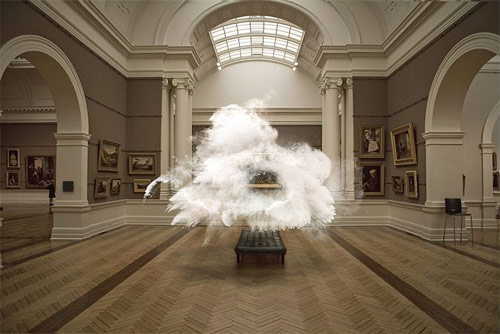Greenfield's collection of poems in A Carnage in the Love Trees tells a challenging depressing story. The poems are glimpses into a dark clouded world. While in some sense I felt sorry for Nick Flynn when I read his poetry, I did not feel this with Greenfield's poems. My emotions toward Greenfield's poetry was more upset and discontented. The loathing that carries on throughout all the poems becomes somewhat tired to me. I found this particularly in "Elegy For the Swing," "The Invention of the Drawing," "Conversion at Play," "Lament for the Mule," and in some sense all of the poems. The poems, while written in present tense, seem to be caught in the past. Greenfield laments over losses and makes the reader lament as well.
One thing I appreciate about Greenfield's poems is his use of physical structure. Some poems are crammed into a single spaced pargraph without any significant breaks while others are spread out all over the page and many pages. This use of structure creates a visual representation of what is being presented. For example, the poem "T" is written in one single paragraph. To me, this presents the image of a single story that takes place in one significant moment or collection of moments. There is no need to break apart this collection of moments because collectively, it presents Greenfield's desired image. Greenfield structures the poem, "Burn the Family Tree," much differently. This poem spans six pages and spaces the lines in no specific order. Some groups of lines are singled out and therefore assumed to have greater importance, power or meaning in the poem. He also uses extra spacing in between certain words on page 21 contributing to the emotion of the poem. Greenfield's use of structure is useful and powerful in conveying his message.
The poem, "Elegy for the Swing," was especially challenging for me to connect with and this line in particular stuck with me,
"The grievous device of the aesthete makes even the incest
beauteous, or censored from the composition" (15).
The aesthetic nature of the swing and its connection with the tree has always been a beautiful image to me. When I read this poem and this line, it made me upset and challenged my relationship with the swing which has always been a happy one. This feeling of being upset with Greenfield's poems was consistent with my reading of his poems. I'm not sure what to directly pin that feeling too. Greenfield's poems are a challenging expression of emotion to me.

Nick- nice job here. I like how you hone in on those two lines and connect your own associations to the reading. These are important lines, and your reaction is key: the "device" Greenfield mentions could be the literary device (or, perhaps, the device of memory) that takes the worst things (like incest) and either turns them 'beautiful' (though notice that the poet swerves from that exact word) or erases them entirely! Greenfield, it seems, wants to avoid doing either.
ReplyDelete~Robert